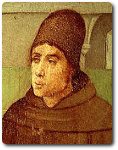Gerard Manley Hopkins, selected poems Contents
- As Kingfishers Catch Fire
- Binsey Poplars
- The Blessed Virgin Mary Compared to the Air We Breathe
- Carrion Comfort
- Duns Scotus' Oxford
- God's Grandeur
- Harry Ploughman
- Henry Purcell
- Hurrahing in Harvest
- Inversnaid
- I Wake and Feel the Fell of Dark
- Synopsis of I Wake and Feel the Fell of Dark
- Commentary on I Wake and Feel the Fell of Dark
- Language and tone in I Wake and Feel the Fell of Dark
- Structure and versification in I Wake and Feel the Fell of Dark
- Imagery and symbolism in I Wake and Feel the Fell of Dark
- Themes in I Wake and Feel the Fell of Dark
- The Leaden Echo and the Golden Echo
- Synopsis of The Leaden Echo and the Golden Echo
- Commentary on The Leaden Echo and the Golden Echo
- Language and tone in The Leaden Echo and the Golden Echo
- Structure and versification in The Leaden Echo and the Golden Echo
- Imagery and symbolism in The Leaden Echo and the Golden Echo
- Themes in The Leaden Echo and the Golden Echo
- The May Magnificat
- My Own Heart, Let Me Have More Pity On
- Synopsis of My Own Heart, Let Me Have More Pity On
- Commentary on My Own Heart, Let Me Have More Pity On
- Language and tone in My Own Heart, Let Me Have More Pity On
- Structure and versification in My Own Heart, Let Me Have More Pity On
- Imagery and symbolism in My Own Heart, Let Me Have More Pity On
- Themes in My Own Heart, Let Me Have More Pity On
- No Worst, There is None
- Patience, Hard Thing!
- Pied Beauty
- The Sea and the Skylark
- Spelt from Sibyl's Leaves
- Spring
- Spring and Fall
- St. Alphonsus Rodriguez
- The Starlight Night
- That Nature is a Heraclitean Fire and of the Comfort of the Resurrection
- Synopsis of That Nature is a Heraclitean Fire
- Commentary on That Nature is a Heraclitean Fire
- Language and tone in That Nature is a Heraclitean Fire
- Structure and versification in That Nature is a Heraclitean Fire
- Imagery and symbolism in That Nature is a Heraclitean Fire
- Themes in That Nature is a Heraclitean Fire
- Thou Art Indeed Just, Lord
- Tom's Garland
- To Seem the Stranger
- To What Serves Mortal Beauty
- The Windhover
- The Wreck of the Deutschland
- Beauty and its purpose
- The beauty, variety and uniqueness of nature
- Christ's beauty
- Conservation and renewal of nature
- God's sovereignty
- The grace of ordinary life
- Mary as a channel of grace
- Nature as God's book
- Night, the dark night of the soul
- Serving God
- Suffering and faith
- The temptation to despair
- The ugliness of modern life
- Understanding evil in a world God has made
Synopsis of Duns Scotus' Oxford
Location
 Hopkins wrote this sonnet in 1879, whilst he was preacher at the Catholic church of St.Aloysius in Oxford. It was the first time he had returned to the city of his undergraduate days. In this sonnet, he praises the medieval philosopher who most influenced him, Duns Scotus, who taught at Oxford circa 1300; and takes the opportunity to praise the medieval part of the city. More on Oxford?
Hopkins wrote this sonnet in 1879, whilst he was preacher at the Catholic church of St.Aloysius in Oxford. It was the first time he had returned to the city of his undergraduate days. In this sonnet, he praises the medieval philosopher who most influenced him, Duns Scotus, who taught at Oxford circa 1300; and takes the opportunity to praise the medieval part of the city. More on Oxford?
More on Oxford: Whilst back in Oxford, Hopkins wrote a number of poems, including Binsey Poplars and Henry Purcell. Another Victorian poet who praises the old university city is Matthew Arnold in his narrative poem ‘The Scholar Gipsy' (1853). Much of the old city is now surrounded by modern suburbs that hide the beauty of its medieval origins.
A sonnet is a poem with a special structure. It has fourteen lines, which are organised in a particular manner, usually characterised by the pattern of rhyming, which changes as the ideas in the poem evolve.
A person within a church appointed to give a sermon at the worship services of that church. He may be the leader of that church, or someone within that church recognised as having a special ability to preach.
1. All Christians worldwide.
2. The Church in the West until the Reformation.
3. The Roman Catholic Church.
Belonging to the Middle Ages.